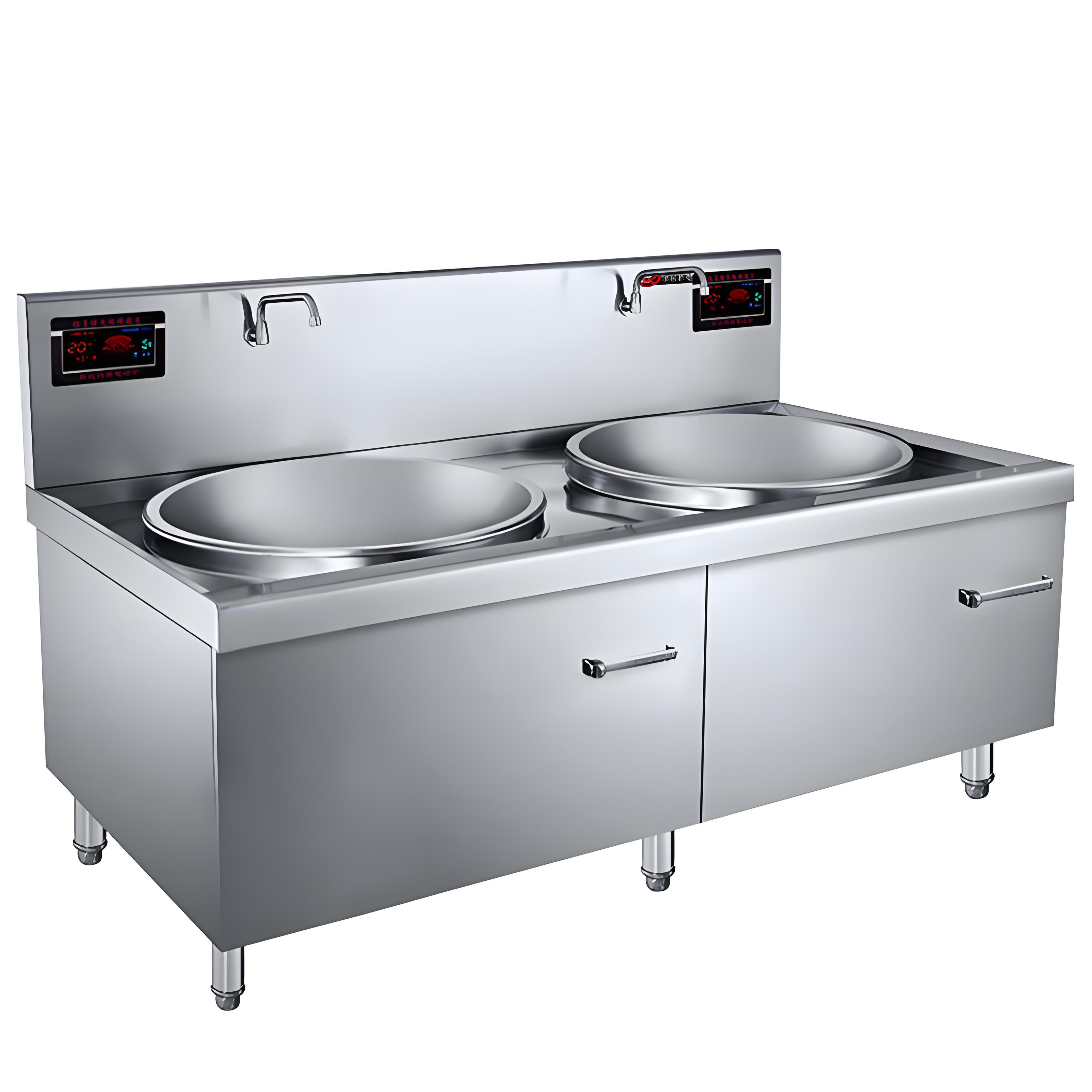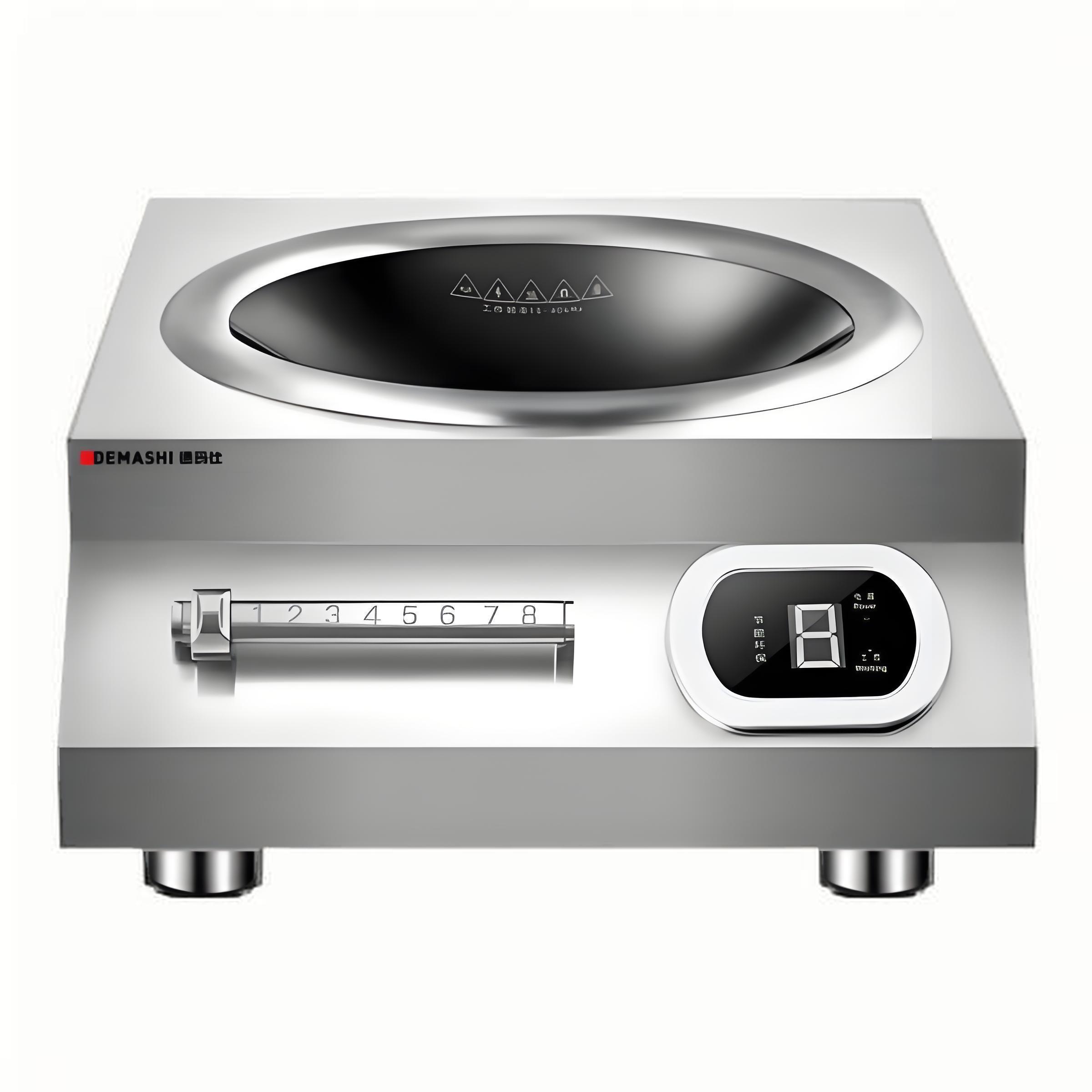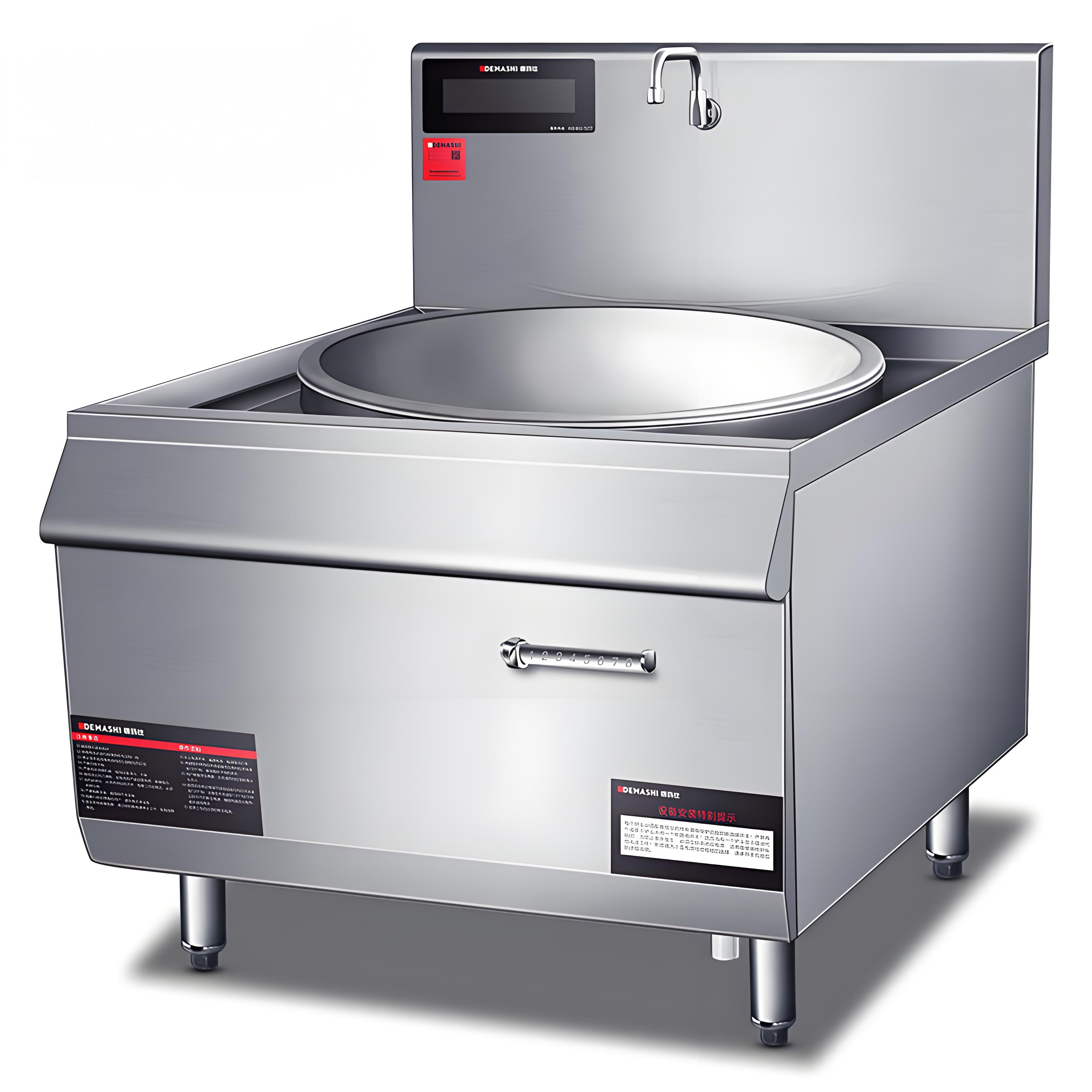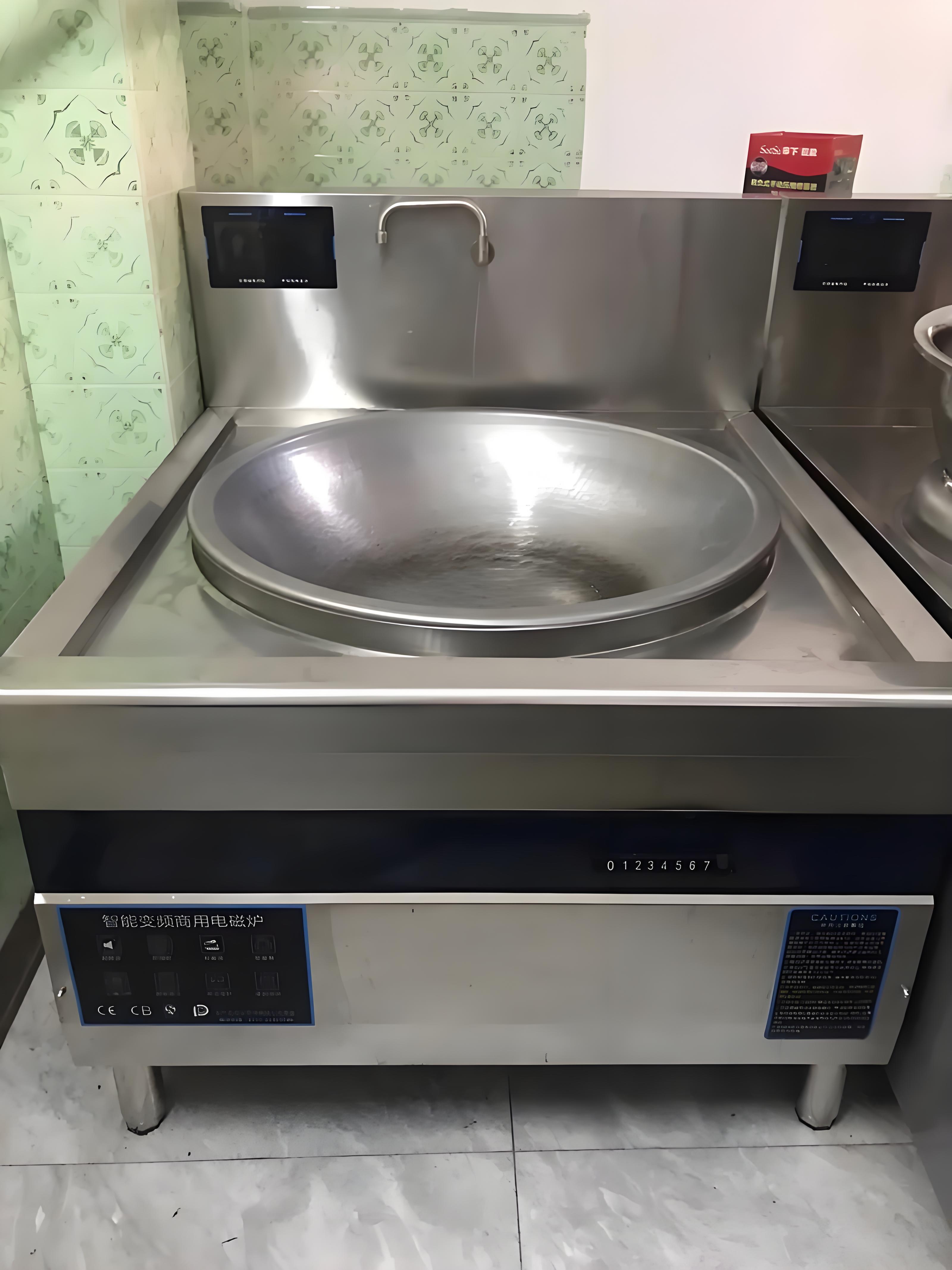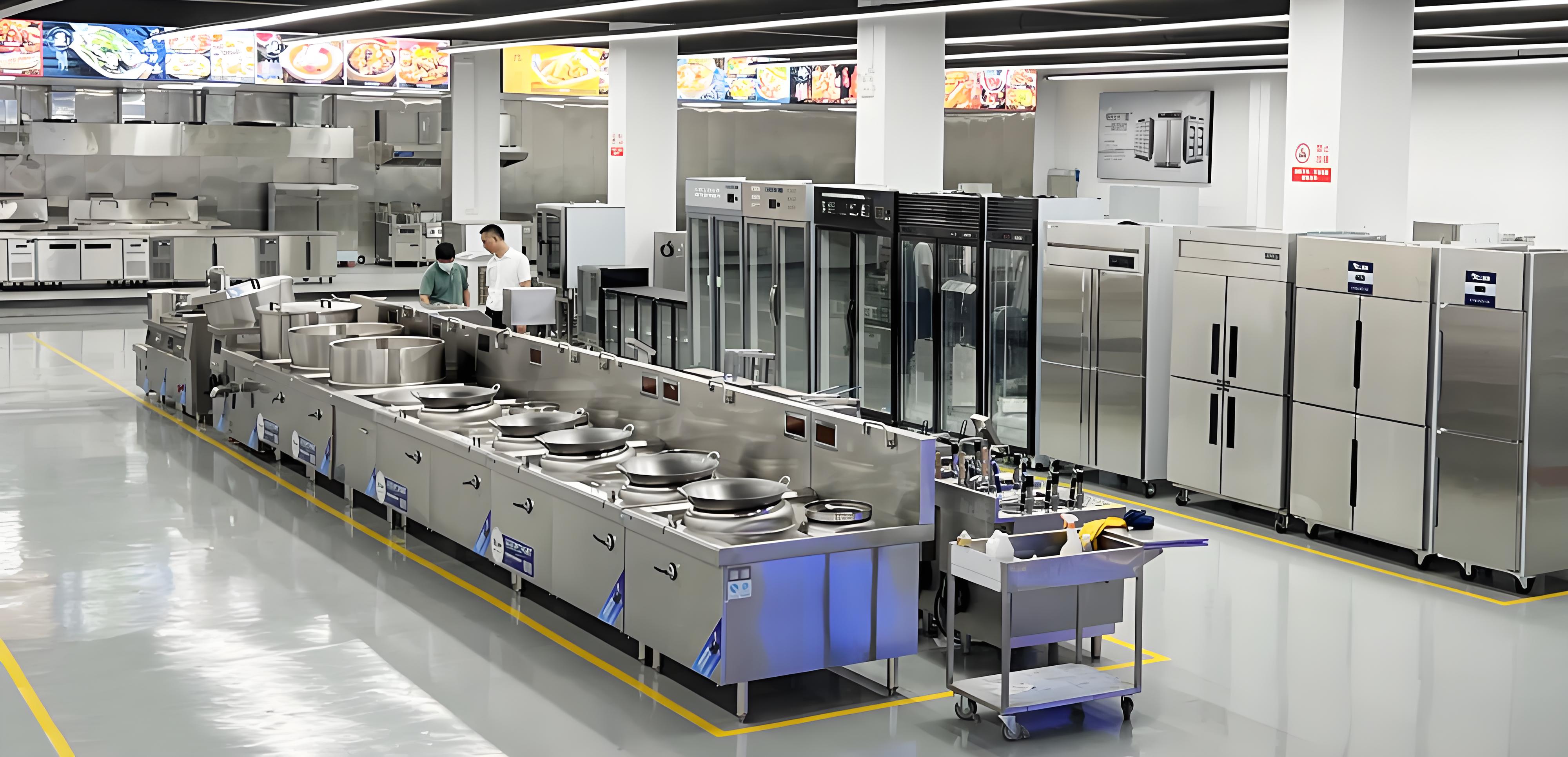In the hustle and bustle of commercial kitchens, commercial induction cookers have become indispensable equipment. They are loved by chefs and restaurant owners for their fast heating speed, high efficiency and precise temperature control. However, when these induction cookers make abnormal noises during operation, it is time to pay attention. As a practitioner who has been deeply involved in the commercial kitchen equipment industry for many years, I have encountered many inquiries about this issue. Today, we will discuss whether it is normal for commercial induction cookers to make abnormal noises and the possible reasons.
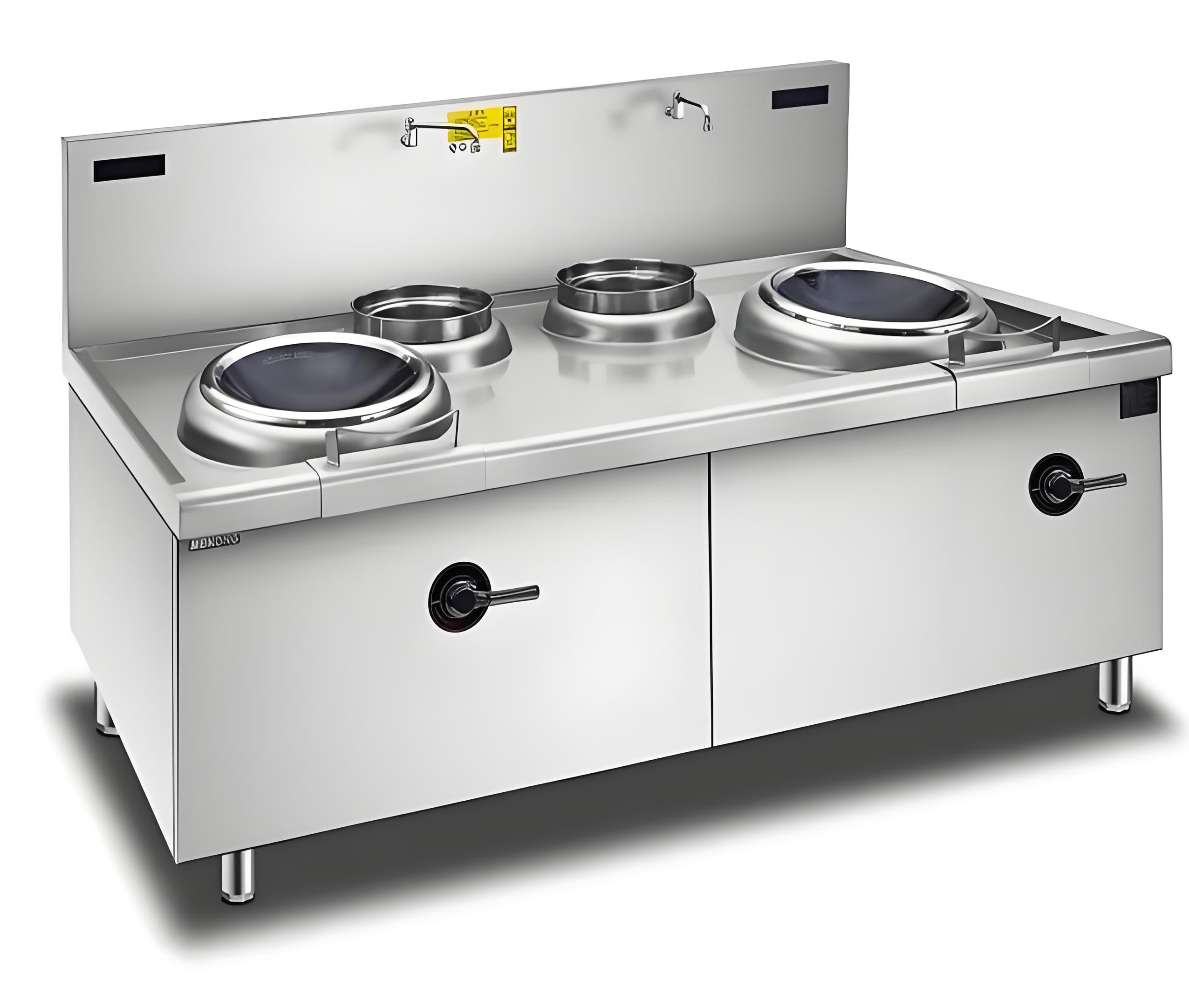
Understanding the Basics of Commercial Induction Cookers
Before diving into the noise issue, let’s first understand how commercial induction cookers work. Induction cookers use electromagnetic fields to generate heat directly in the cookware placed on them. When an alternating current passes through the coil beneath the cooktop, it creates a magnetic field that induces eddy currents in the ferromagnetic cookware. These eddy currents then generate heat, which is used for cooking.
This technology offers several advantages over traditional gas or electric cookers. It’s more energy – efficient as it heats the cookware directly rather than the surrounding air. It also provides faster heating times and better temperature control, allowing chefs to cook more precisely.
Common Types of Unusual Noises in Commercial Induction Cookers
1. Humming or Buzzing Noises
One of the most common noises you might hear from a commercial induction cooker is a humming or buzzing sound. This is usually caused by the electromagnetic field interacting with the cookware. When the cookware is placed on the cooktop, the magnetic field causes the molecules in the cookware to vibrate, which can produce a humming or buzzing noise. The intensity of the noise can vary depending on factors such as the type of cookware, its size, and the power setting of the cooker.
2. Clicking or Popping Noises
Clicking or popping noises can also occur during the operation of a commercial induction cooker. These noises are often associated with the internal components of the cooker, such as the relays or switches. When the cooker is turned on or off, or when the power setting is adjusted, these components may make clicking or popping sounds as they activate or deactivate.
3. Rattling Noises
Rattling noises can be a sign of a more serious issue. They may be caused by loose parts inside the cooker, such as screws, bolts, or the fan blades. If the cooker has been subjected to rough handling or has been in use for a long time without proper maintenance, these parts may become loose and start to rattle.
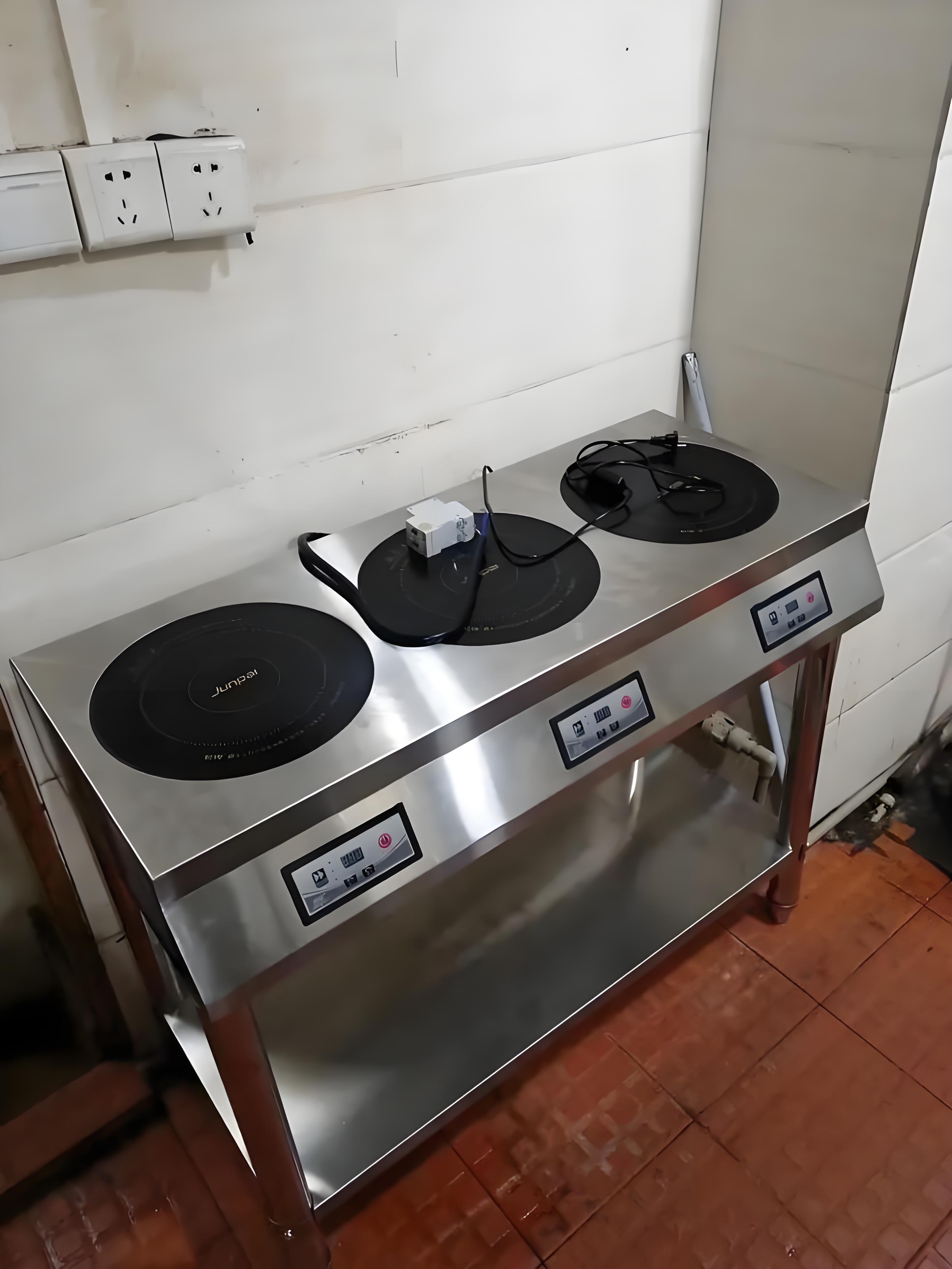
4. Grinding or Screeching Noises
Grinding or screeching noises are definitely not normal and should be addressed immediately. These noises could indicate a problem with the fan or the motor of the cooker. The fan is responsible for cooling the internal components of the cooker, and if it’s damaged or not functioning properly, it can make grinding or screeching sounds. Similarly, a faulty motor can also produce these unpleasant noises.
Is It Normal for Commercial Induction Cookers to Make These Noises?
1. Humming or Buzzing Noises
In most cases, a mild humming or buzzing noise is considered normal for commercial induction cookers. It’s a natural by – product of the electromagnetic induction process. However, if the noise is excessively loud or seems to be getting louder over time, it could be a sign of a problem. For example, if the cookware is not placed properly on the cooktop or if it’s not compatible with the induction cooker, it can cause the noise to increase. Additionally, if there’s a problem with the internal components of the cooker, such as a faulty coil or a damaged circuit board, it can also lead to louder humming or buzzing noises.
Factors Affecting Humming/Buzzing Noise Level
| Factor | Description | Impact on Noise Level |
|---|---|---|
| Cookware Material | Ferromagnetic materials like cast iron and stainless steel work best with induction cookers. Non – ferromagnetic materials like aluminum or copper may not work as well and can cause more noise. | Higher noise with non – compatible cookware |
| Cookware Size | Cookware that is too small or too large for the cooking zone can cause the electromagnetic field to be unevenly distributed, leading to more noise. | Increased noise with improper – sized cookware |
| Power Setting | Higher power settings generally produce stronger electromagnetic fields, which can result in louder humming or buzzing noises. | Noise increases with higher power |
| Cooktop Condition | A dirty or damaged cooktop can interfere with the electromagnetic field and cause more noise. | Dirt or damage leads to louder noise |
2. Clicking or Popping Noises
Clicking or popping noises that occur when the cooker is turned on, off, or when the power setting is adjusted are usually normal. These are the sounds of the internal components operating as they should. However, if these noises are constant or occur even when the cooker is not being adjusted, it could be a sign of a malfunction.
3. Rattling Noises
Rattling noises are not normal and should be investigated. Loose parts inside the cooker can not only cause annoying noises but also pose a safety hazard. If left unaddressed, these loose parts can cause further damage to the cooker or even lead to electrical problems.
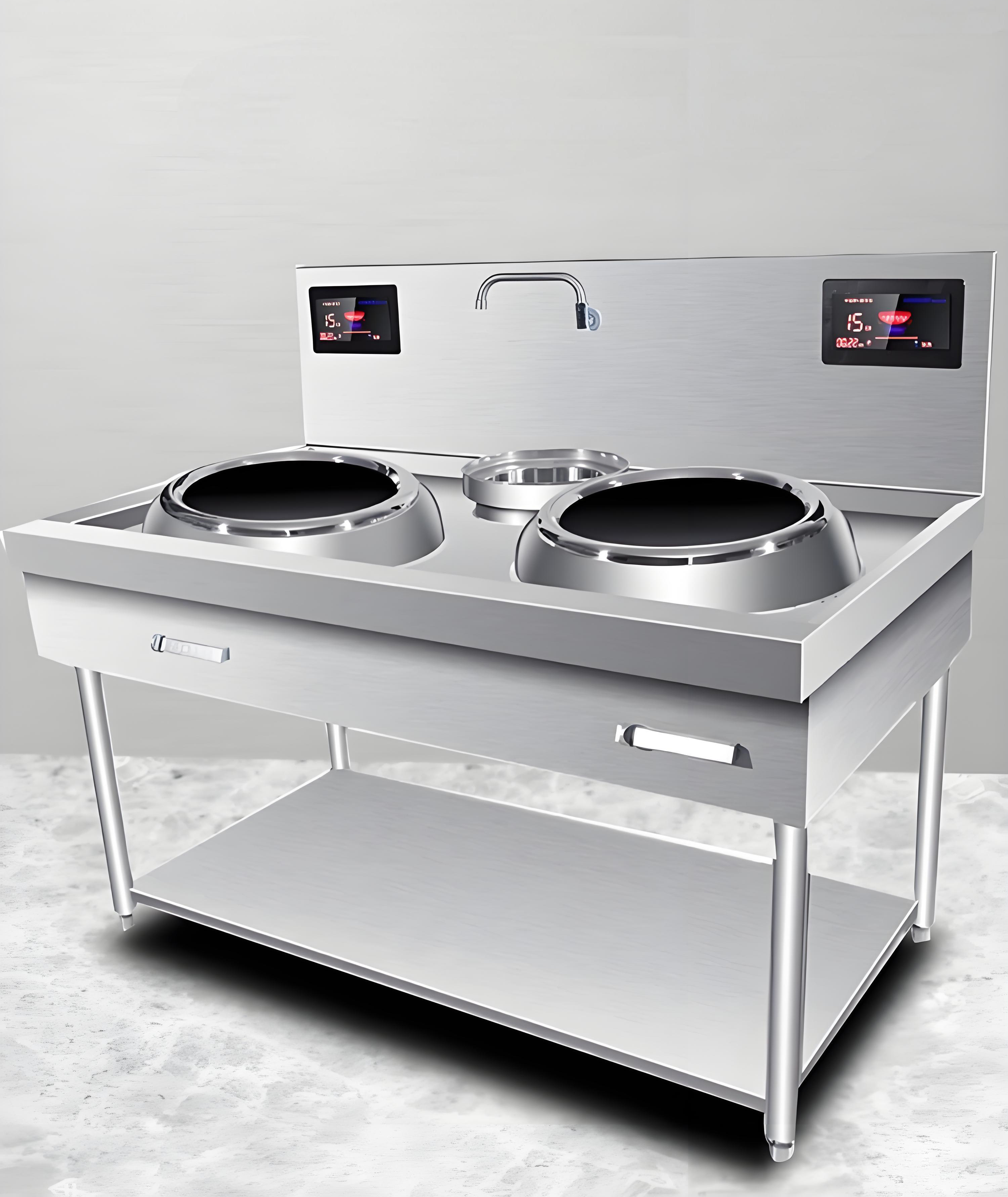
4. Grinding or Screeching Noises
Grinding or screeching noises are never normal and require immediate attention. A damaged fan or motor can cause the cooker to overheat, which can lead to a fire hazard. It can also cause the cooker to malfunction and stop working altogether.
Possible Causes of Unusual Noises
1. Cookware Issues
As mentioned earlier, the type and condition of the cookware can have a significant impact on the noise level of the commercial induction cooker. Using non – ferromagnetic cookware, cookware that is too small or too large, or cookware that is damaged or warped can all cause unusual noises.
2. Internal Component Problems
Problems with the internal components of the cooker, such as the coil, circuit board, relays, switches, fan, or motor, can also lead to unusual noises. For example, a damaged coil can cause the electromagnetic field to be uneven, resulting in humming or buzzing noises. A faulty circuit board can cause the cooker to malfunction and produce clicking or popping noises. A damaged fan or motor can produce grinding or screeching noises.
3. Installation or Maintenance Issues
Improper installation of the cooker or lack of regular maintenance can also cause unusual noises. If the cooker is not installed level, it can cause the internal components to vibrate and produce noises. Lack of cleaning can lead to a build – up of dirt and debris, which can interfere with the operation of the cooker and cause noises.
Common Installation and Maintenance Issues and Their Effects
| Issue | Description | Effect on Noise |
|---|---|---|
| Uneven Installation | The cooker is not installed on a level surface, causing it to rock or vibrate. | Increased vibration and noise |
| Lack of Cleaning | Dirt, grease, and food debris accumulate on the cooktop or inside the cooker. | Interference with electromagnetic field and internal components, leading to noise |
| Improper Ventilation | The cooker is not placed in a well – ventilated area, causing it to overheat. | Overheating can damage internal components and cause noises |
| Loose Connections | Electrical connections inside the cooker become loose over time. | Can cause arcing or electrical noises |
How to Diagnose and Fix the Problem
1. Check the Cookware
The first step in diagnosing the problem is to check the cookware. Make sure you’re using ferromagnetic cookware that is the appropriate size for the cooking zone. Clean the cookware thoroughly to remove any dirt or debris that could be causing the noise. If the cookware is damaged or warped, replace it with a new one.
2. Inspect the Cooker’s Internal Components
If the cookware is not the issue, you’ll need to inspect the cooker’s internal components. This may require some technical expertise, so if you’re not comfortable doing it yourself, it’s best to call a professional technician. The technician can check the coil, circuit board, relays, switches, fan, and motor for any signs of damage or wear. They can also tighten any loose parts and replace any faulty components.
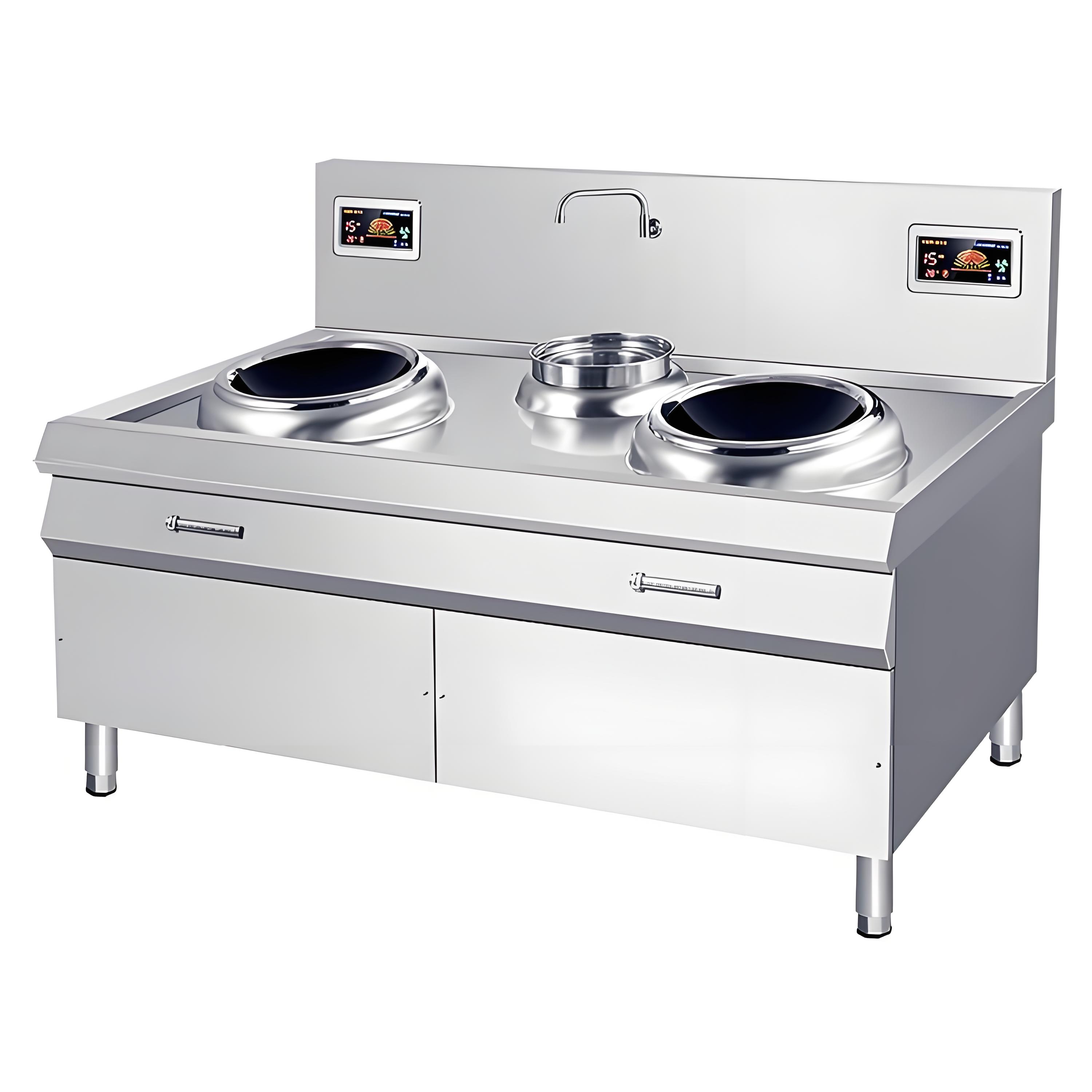
3. Review Installation and Maintenance
Check the installation of the cooker to make sure it’s level and properly secured. Review your maintenance routine to ensure that you’re cleaning the cooker regularly and that it’s placed in a well – ventilated area. If you find any issues with the installation or maintenance, make the necessary adjustments.
Preventive Measures to Avoid Unusual Noises
1. Use the Right Cookware
Always use ferromagnetic cookware that is the appropriate size for the cooking zone. Avoid using non – ferromagnetic cookware or cookware that is damaged or warped.
2. Regular Maintenance
Clean the cooker regularly to remove dirt, grease, and food debris. Follow the manufacturer’s instructions for cleaning and maintenance. Schedule regular inspections by a professional technician to check for any potential problems with the internal components.
3. Proper Installation
Ensure that the cooker is installed level and properly secured. Follow the manufacturer’s installation instructions carefully. If you’re not sure about the installation, hire a professional to do it for you.
4. Avoid Overloading
Don’t overload the cooker with too much cookware or food. This can cause the cooker to work harder and produce more noise.
Real – Life Examples of Noise Issues and Solutions
1. Example 1: Humming Noise Due to Incompatible Cookware
A restaurant owner noticed that their commercial induction cooker was making a loud humming noise. After some investigation, they found that they were using aluminum cookware, which is not compatible with induction cookers. They switched to stainless steel cookware, and the humming noise was significantly reduced.
2. Example 2: Rattling Noise from Loose Screws
A chef in a busy kitchen reported a rattling noise coming from their induction cooker. A technician was called in, and they discovered that some screws inside the cooker had become loose. The technician tightened the screws, and the rattling noise stopped.
3. Example 3: Grinding Noise from a Damaged Fan
A catering company’s induction cooker started making a grinding noise. The cooker was taken to a repair shop, where the technician found that the fan was damaged. The fan was replaced, and the cooker started working normally again without any noise.

Conclusion
In conclusion, while some mild humming or buzzing noises may be normal for commercial induction cookers due to the electromagnetic induction process, other types of unusual noises, such as rattling, grinding, or screeching, are not normal and should be addressed promptly. By understanding the possible causes of these noises and taking the necessary steps to diagnose and fix the problem, you can ensure that your commercial induction cooker operates smoothly and quietly. Regular maintenance, using the right cookware, and proper installation are also key to preventing unusual noises and extending the lifespan of your cooker.
Related Questions
Q1: Can I use any type of cookware on a commercial induction cooker?
A1: No, you cannot use any type of cookware on a commercial induction cooker. You need to use ferromagnetic cookware, such as cast iron, stainless steel, or some types of enameled cookware. Non – ferromagnetic materials like aluminum, copper, and glass will not work with induction cookers. You can test if your cookware is induction – compatible by placing a magnet on the bottom. If the magnet sticks, the cookware is likely to work with an induction cooker.
Q2: How often should I clean my commercial induction cooker?
A2: You should clean your commercial induction cooker after each use to prevent the build – up of dirt, grease, and food debris. Use a soft, damp cloth and a mild detergent to wipe down the cooktop. Avoid using abrasive cleaners or scouring pads, as they can scratch the surface of the cooktop. For a deeper clean, you can follow the manufacturer’s instructions for removing the cooktop and cleaning the internal components.

Q3: What should I do if my commercial induction cooker starts making unusual noises?
A3: If your commercial induction cooker starts making unusual noises, the first step is to check the cookware. Make sure you’re using the right type and size of cookware and that it’s clean and in good condition. If the cookware is not the issue, turn off the cooker and unplug it. Call a professional technician to inspect and diagnose the problem. Do not attempt to repair the cooker yourself unless you have the necessary technical expertise, as this could be dangerous and may void the warranty.
Q4: How long do commercial induction cookers typically last?
A4: The lifespan of a commercial induction cooker can vary depending on factors such as the quality of the cooker, how often it’s used, and how well it’s maintained. On average, a well – maintained commercial induction cooker can last anywhere from 5 to 10 years or more. Regular maintenance, such as cleaning and inspecting the internal components, can help extend the lifespan of the cooker.
Q5: Are commercial induction cookers energy – efficient?
A5: Yes, commercial induction cookers are generally more energy – efficient than traditional gas or electric cookers. They heat the cookware directly rather than the surrounding air, which reduces heat loss and energy consumption. Additionally, they offer faster heating times and better temperature control, which can also contribute to energy savings in the long run.
